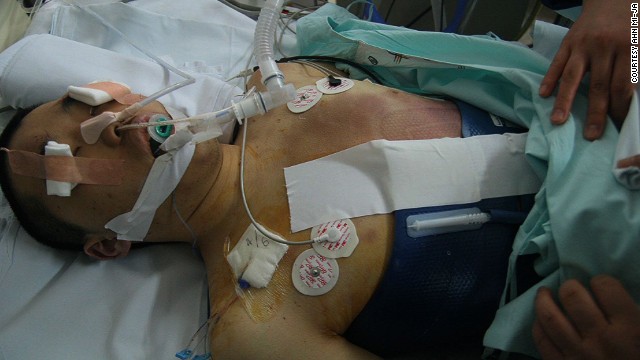By Max Bartels
Impunity Watch Reporter, Oceania
Canberrra, Australia
The largest counter-terrorism operation in the history of Australia took place today as somewhere between 800 to 1,000 Australian police officers took part in raids across Sydney to apprehend members of ISIS plotting terror acts in the city. 15 suspects were arrested and over a dozen raids executed on properties across Sydney. The Prime Minister of Australia, Tony Abbott stated today that he was briefed by Australian intelligence agencies Wednesday night about a potential plot by ISIS member in Sydney to stage a public execution in an attempt to demonstrate the groups reach. The police have further stated that they have gathered evidence showing that ISIS supporters in Australia have been plotting these attacks since May.

Calls for attacks in Australia have apparently been coming from an Australian who is reported by Abbott to be high up in the ISIS ranks. Abbott refused to state the name of the suspected high up Australian ISIS member. Police arrested a 22- year- old member of ISIS, who prosecutors say planned to gruesomely behead a randomly selected person in public with a clear intent to shock and horrify. The police have since stated that 9 of the 15 suspects arrested during the raid have been released on bail.
Raids on a smaller scale were executed in Brisbane last week, where two men were arrested for attempting to recruit members to join the AL-Qaeda off shoot group called the “Nursa Front”. These men were also preparing to leave for Syria themselves. In the wake of these recent events the Australian government has raised the terrorist threat level from medium to high. Australian intelligence agencies report that some 60 Australian citizens have gone abroad to fight for ISIS and other militant Islamic groups in the Middle East. These agencies also report that they believe that there are around 100 Australians in Australia supporting ISIS by recruiting fighters, grooming suicide candidates and providing funds and equipment.
On Thursday night a crowd of around 300 protesters gathered in Sydney to protest against the raids. Australian Islamic groups are warning the government of potential unrest over the governments new anti-terror polices. The leader of one of these Islamic groups stated that the Muslim community is being made scapegoats and that he believes the real terrorists are the government. He further stated that Muslims in Australia do not feel safe and that the Muslim community has been victimized for years.
Last week Australia announced that it would be contributing to the international effort to combat ISIS by deploying military forces to the Middle East. Abbott stated then that there was a concern of ISIS threats in Australia. He has recently played down concerns that Australia’s involvement abroad could increase the risk of attack at home.
For more information; please see:
NBC News — Raids Foil Alleged Beheading Plot in Support of ISIS — 18 September 2014
CBS News — Australian in Australia: We Thwarted Grisly ISIS Plot — 18 September 2014
Fox News — Australia Raids Foil Reported ISIS Beheading Plots — 18 September 2014
The Guardian — Terrorism Raids: ISIS Urging Followers to Behead Australians’, Says PM



